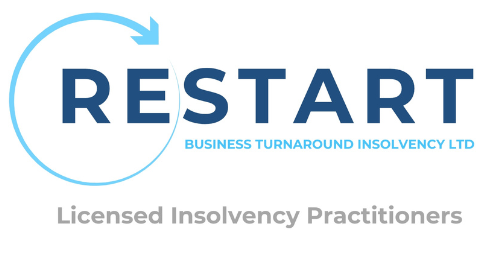
Do You Have to Declare Old Bankruptcies?
Filing for bankruptcy can be an overwhelming time for any individual or business. In this blog we discuss whether you have to declare old bankruptcies, the impact of bankruptcy and its advantages. We also detail the restrictions so you can make sure you don’t breach any of them during the bankruptcy process and after you have been discharged. So do you have to declare old bankruptcies?
There are no rules that say you have to declare old bankruptcies after you are discharged. This is usually a year after you declare bankruptcy, however certain circumstances can delay this – such as not cooperating with your official receiver.
Read on to find out more about whether you are required to declare old bankruptcies and how to do so.
Are You Required to Declare Old Bankruptcies?
After a year of being bankrupt, you will more than likely be discharged, removing any restrictions of bankruptcy and any debts covered. Once you have been discharged, there are no rules stating you must declare this going forward. Your personal situation can impact how long it takes for you to be discharged from bankruptcy, with some circumstances taking longer than a year. This usually occurs when you do not cooperate with the official receiver handling your bankruptcy.
The details of your bankruptcy will also be made available for anyone to view in the following circumstances:
- Insolvency service register – this is the public register of bankruptcies in the UK and can be accessed by anyone.. This record remains until you are discharged.
- Credit reference agencies – your credit report will include information about your bankruptcy for six years from the date of discharge. This can then be shared with businesses that perform credit checks and they may refuse to give you credit or financial services.
- London gazette – A permanent record of your bankruptcy is also archived in the London Gazette.
There are some exceptions to your debts being removed, such as where you owe money to people or companies within the EU. They may keep contacting you about the money you owe during and after your bankruptcy. In the UK EU creditors have to sue in the UK rather than abroad. If you have any debts owed that your bankruptcy doesn’t cover or are caused by fraudulent activity.
If you have any belongings involved in your bankruptcy, being discharged doesn’t automatically mean you will get them back straight away. The official receiver handling your bankruptcy may take some time to deal with them.
What Are the Restrictions of Bankruptcy?
Although most restrictions of bankruptcy will be removed after you are discharged, you should still be aware so you can avoid future bankruptcy or breaking any of the rules.
- Affected ability to obtain credit – You cannot get credit over £500 without disclosing your bankruptcy status. This can also be impacted even after you are discharged as your bankruptcy status is stated on your credit report for six years, loans and financial companies can be wary about lending you money.
- Acting as the director of a company – You are not allowed to act as a company director or make actions on behalf of a company while in bankruptcy without the approval of the court.
- Opening a bank account – Some banks may refuse to open a bank account or get a credit card for anyone who is bankrupt as they want to ensure you will responsibly manage your money. You are however entitled to open a basic bank account without overdraft.
- Restricted travelling – You have to gain permission from your trustee to travel abroad while in bankruptcy.
- Assets – You may be limited to the type of assets you can get while bankrupt including vehicles and property. Existing assets may also be required to be sold to pay off debts.
Some jobs are affected – The majority of jobs are not affected at all by Bankruptcy. However there are some roles that you will be prevented from carrying out for the duration of your bankruptcy. These include Company Directors, Accountants and Solicitors. Having said that this restriction applies only while the bankruptcy lasts which is normally just one year.
What Are the Advantages of Bankruptcy?
Although there are limits when you declare bankruptcy, there are also a number of advantages. When you file for bankruptcy, your debts are essentially written off so you get a fresh financial start. This means debts you owe to creditors are no longer legally enforceable including credit card debts and personal loans. Creditors can no longer take legal action against you to receive their payment.
Bankruptcy also doesn’t mean losing your assets, some can be exempt from being sold to repay creditors including basic household items and anything necessary for employment. For more information on the advantages and disadvantages of bankruptcy, check out our recent blog which goes into more detail.
Bankruptcy Advice from Restart BTI
As licensed insolvency practitioners, our experts can provide advice on how to handle your bankruptcy process. We can help you get back on track and cooperate with the official receiver. Our team has over 50 years experience assisting companies, business owners and individuals. Find out more about how we can help you today by getting in touch.

Established in 2018, the directors at Restart BTi have over 50 years of experience to assist companies, business owners and individuals with expert advice and tailored solutions when facing financial difficulties.
